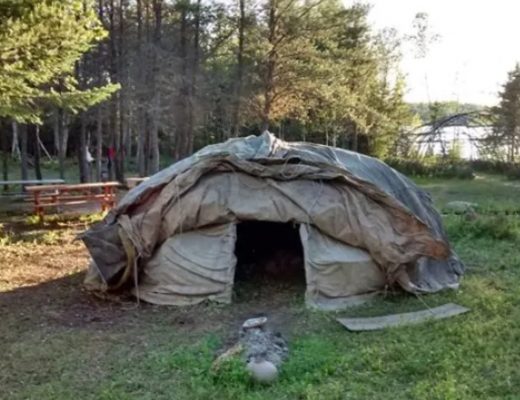Every human being has a favorite subject: him or herself. This is only natural since it is the “I” who experiences the world and there is no subject that any of us know so well as ourselves. Right?
But what if this conceit is, in fact, wrong? What if we know absolutely nothing about ourselves and that as a result everything we know about the world also is wrong? Furthermore, what if our ignorance of self is not only the root cause of all our suffering but that the antidote to this ignorance – i.e. knowing ourselves – is the answer to that Holy Grail each of us is seeking, namely, the “meaning of life”? Finally, and probably most disturbing, what if the result of “knowing thyself” led to the realization that there is no “self” to begin with – that you quite literally don’t exist, that you were never born and will never die.
 Ironically, to help illustrate we must start with your birth – you know, the one that ultimately didn’t take place. To kick things off, mom and dad meet, a sexual union ensues, you are conceived. Immediately a biological construction process of unimaginable complexity begins. Cell-by-cell, “you” are constructed based on genetic blueprints handed down from mom and dad. Many months of embryonic gestation later, a wriggling pupa of immense potential is heaved (or pulled) into the world. You have arrived on the scene and, thus far, have had zero say in any of the production.
Ironically, to help illustrate we must start with your birth – you know, the one that ultimately didn’t take place. To kick things off, mom and dad meet, a sexual union ensues, you are conceived. Immediately a biological construction process of unimaginable complexity begins. Cell-by-cell, “you” are constructed based on genetic blueprints handed down from mom and dad. Many months of embryonic gestation later, a wriggling pupa of immense potential is heaved (or pulled) into the world. You have arrived on the scene and, thus far, have had zero say in any of the production.
The umbilical cord is severed – a kind of ribbon-cutting welcome to the world – and in short order mom, dad, siblings, extended family members, the family dog/cat all set about conditioning you to see the world from their own limited perspectives (remember, they unwittingly starred in the same drama not so many years earlier). Ok, I can hear you say, but now that “I” have arrived surely I have some control over things, some ownership over “me.”
Not so fast. Biologically speaking, the script already has been written and there’s really nothing you can do about it. White or black, gay or straight, male or female, healthy or handicapped, tall or short – your physical inheritance was codified at conception. Similarly, the individual temperaments of mom and dad (assuming they keep you and that both stick around), the nation and culture in which they live, their education and income levels, the absence or presence of siblings, your physical environment – all are foisted on you.
Further still, you have no power of language and as such lack the means to construct any meaningful understanding of the world around you. The very tools through which that understanding will come must first be granted you by those around you. Picture, for example, the infant brain. There is consciousness; something approaches (though you have no words for “something” or “approaches”); strange sensations ensue causing you to squirm; the same something recedes. What has actually happened is the family dog has wandered over, sniffed your face, licked you and wandered off again. But until mom, dad, a sibling, or a teacher explains dogs, family, tongues, sniffing, and so on absolutely none of this can be characterized, labeled, processed or stored for future complex thought. The point being: “You” are utterly dependent on the outside world to define itself and because the outside world itself has been conditioned your conditioning will depend on its conditioning (i.e. the dog, abused by its owner, bites instead of licks, thereby conditioning you to perceive future encounters with dogs in a completely different way). The question remains, where are “you” in this process?
To summarize….
Newborns are labeled “sponges” due to their capacity to learn. But the key here is that they are absorbing the words, ideas and deeds of others. The infant itself has no control over its biology, no control over its surroundings, and even the very basis through which it makes sense of the world must first be handed down by those who preceded it.
Yes, you counter, but once I’m older I can start forming thoughts of my own. But if every thought you create is forged in the furnace of another’s making, is it really your thought? If dad was a drunkard who blamed blacks, homosexuals and Democrats for the world’s ills, are your thoughts on race, sexual orientation and politics truly your own regardless of where you come down on any of these issues? If mom withheld affection, are “you” to blame for the adult insecurities and neediness that haunt you?
But take a bigger step back and ask yourself, “Are you even in control of ‘ your’ thoughts?” For those who answer, “Yes,” pull out a sheet of paper and write down what you plan to be thinking about five minutes from now. Better still, when you reach the end of this sentence see if you can stop thinking for five minutes. These are simple exercises that expose the truth that we have about as much authority over “our” thoughts as we do our height or eye color.
So we’re back to square one: Who or what are you? If I am nothing more than a biologically predetermined organism conditionally parroting the similarly conditioned thoughts and actions of those who came before me, can I realistically or honestly announce that “I” am this or that “I” think that? And if there really is no unique “me” in all of this, is it not possible for me to start recognizing that I and everything else on this planet are in fact One? That to judge another truly is to judge myself, since “they” have as much ownership of themselves as do I?
 In a previous post we hit on this very theme when we took note of that common human complaint about the thinking or behavior of others. As in, “Geez, that guy is such a jerk. I would never do such a thing.” But, if “I” switched places with him – if I was born to his parents and grew up in his home and came of age in the same circumstances he did, what part of “me” would make “him” any different? Where is that essential part of “me” that is transferred over?
In a previous post we hit on this very theme when we took note of that common human complaint about the thinking or behavior of others. As in, “Geez, that guy is such a jerk. I would never do such a thing.” But, if “I” switched places with him – if I was born to his parents and grew up in his home and came of age in the same circumstances he did, what part of “me” would make “him” any different? Where is that essential part of “me” that is transferred over?
How then, can any of us, ever point our finger at another and pass judgment? But even as I type those words my brain/ego says, “If all of us took that mentality then there’d be no ‘sin,’ no rationale for being ‘good,’ no punishment for those who misbehave since, according to this logic, we’re just puppets.”
I can’t help thinking, though, that if all of us finally surrendered to these truths, if all of us at last recognized ourselves in others, if we felt compassion for their struggles and frustrations as well as our own, then perhaps all of the fear of separation that leads to suffering (and resulting misbehavior, which is really self-destructive behavior) would simply disappear. Maybe we’d go easier on ourselves and those around us.
Just a thought. And yes, a conditioned thought at that.
[print_link]





The healthy newborn “sponge” is truly conditioned by his/her surroundings, as you say in your post. Some of that conditioning can be harmful; abuse of all kinds: sexually, religious, and violence to name but a few. But I would like to believe there is conditioning, knowingly or not, that is good for the “sponge.” Besides, how could evolutionary conditioning be changed any way? The sponge is conditioned by another sponge that is conditioned by another sponge, and so on, and so on. What goes around continues to go around. Yes, your point is well taken: “You” are utterly dependent on the outside world to define itself and because the outside world itself has been conditioned your conditioning will depend on it’s conditioning.” The question is, at what stage (or time) of the sponge life can he or she know it is bad, or good, conditioning? I don’t think I would agree that because every thought the sponge creates has been “forged in the furnace of another’s making.” Are we influenced, yes indeed, we are. Is that good? Maybe. I believe, at some point in our lives, independent of our conditioning, we could make choices, bad or good, as to what we want to be as a human sponge living in a very conditioned world. It is possible to remove the stain of a dad’s alcoholism, his abuse (of all kinds), and your dad’s conditioning. “Wow, I’m not sure I said that right.”
Finally, I’m certain we, all of us, have been placed in this world will recognize we have been given a “Free Will.” A free will to make choices, bad or good, in spite of our conditioning. Kind of reminds me of the story-line in the book “The Shack.”
Doug, your last statement in your post say’s everything about you, and the kind of person you are. Your deep thoughts are inspiring! You say:
“If all of us at last recognized ourselves in others, if we felt compassion for their struggles and frustrations as well as our own, then perhaps all of the fear of separation that leads to suffering would simply disappear. Maybe we’d go easier on ourselves and those around us.”
Well said,
Guy
The last statement is quite liberating if we can pull away from the gravity of our conditioning.
Steve
Perhaps, you, are always born you, regardless of your parents or conditioning. Siblings show great diversity in lifestyles and this may hint at a development of a ‘greater life’; reincarnation ? Maybe there is a ‘human’ collective consciousness linking us all together as C. Jung’s dream studies seemed to show.